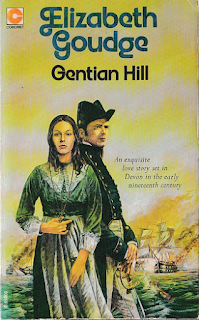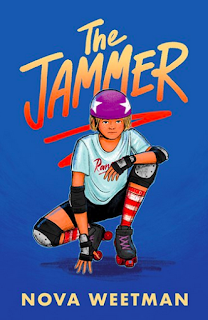Okay, I'm not sure how this happened, but I've got terribly behind in my posting. So I'm going to lump together a whole lot of books in one hit.
Sorrow and Bliss by Meg Mason -- borrowed from one of my book group ladies (I'm not actually sure who it belongs to, it's been passed around!). This is such a marvellous novel, a funny and dry story about mental illness -- not just what it's like to suffer from it, but what it's like for the support crew of the sufferer. Brilliantly written, moving, sad, clever but also often laugh out loud funny. Ooh, I've just discovered that despite this book being set in the UK, Mason is an Australian author. Yay! I need to read more of her work.
The Five Love Languages by Gary Chapman -- as you know, I am a sucker for pop psych nonsense like this, but in this case (I always say this) I believe there is a grain of truth to the idea behind it. It's another weirdly Christian self-help book for couples with the emphasis on sticking it out no matter what, which I found very uncomfortable in one chapter in particular where the wife (why is it always the wife??) is advised to basically love-bomb her unresponsive and unpleasant husband in his preferred 'love language' until his 'love tank' fills up and he begins to reciprocate. She has to do this for six months before she has permission to give up! Apparently it worked, but it left a sour taste in my mouth. Having said that, I do think that people express and receive love in different ways and it's just as well to be aware of whether those in your life prefer 'acts of service,' 'words of affirmation,' 'physical touch.' 'quality time' or 'receiving gifts.' I know I am definitely NOT in the last category.
The Cloudspotter's Guide by Gavin Pretor-Pinney. I bought this funny little book for my Dad who is a cloudspotter from way back. Written by the founder of the Cloud Appreciation Society (don't laugh, it has over 50,000 members in 120 countries), this is a clear and simple guide to the basic cloud types, explaining the science behind their formation and including plenty of whimsical trivia along the way. The best chapter is the last, in which the author travels to remote outback Queensland to experience the Morning Glory, a truly magnificent cloud phenomenon which glider pilots can surf like a breaker. Look it up.
Knight's Castle by Edward Eager -- it occurred to me that this book, by one of my old favourite children's authors, might have some King Arthur content. Alas, it was more Ivanhoe-centred than King Arthur. Not one of Eager's strongest titles, I'm not surprised I couldn't remember much, or indeed anything, about it, and it owes a huge, and acknowledged, debt to E. Nesbit's The Magic City.
The Year of Reading Dangerously by Andy Miller -- another category of book I have a weakness for, the reading diary, reading self-help book, reading memoir, call it what you will, but this one was better than I expected (my edition has a particularly dull cover). Miller was in a stagnant period of his life when he decided to use his work commute for reading rather than Sodoku, resolving to knock over those classic novels he always claimed to have read but never had. Achieving this goal kicked off an examination of his whole life, with diversions into his reading childhood, his career, his marriage, a bizarre passionate rant about an obscure book on German rock which captures the peculiar euphoria of the book written for you. A strong example of the genre.
Amongst Our Weapons by Ben Aaronovitch -- the most recent installment of the Rivers of London series. I have given up trying to keep track of continuity in this series, and Aaronovitch seems compelled to add more new characters with each volume, which means less and less screen time for the old favourites. Personally I would be quite happy with a story that featured only Peter, Nightingale and Beverly, but hey, it's not my world. I raced through Amongst Our Weapons and thoroughly enjoyed it.
Goldengrove Unleaving by Jill Paton Walsh -- a somewhat problematic book by my new favourite writer. Tracking down this volume (in fact two companion novels) has been my quest for some time and I was so thrilled to find it, both books in one volume. Originally published as young adult, I think they are properly adult novels, though they centre on teenagers. Clearly Paton Walsh felt a strong attachment to the St Ives area in Cornwall, because these books are also set there (like The Serpentine Cave) and her descriptions of the sea and the coast are beautiful. I did wonder, in the second book, just how so many bodies could be crammed, with apparent ease, into this one old house! And I had a massive problem with the way the character of Molly, a young girl with Down Syndrome, was portrayed, to the point where it interfered with my enjoyment of the book. I suspect this element might be the reason why a book described by the New York Times Book Review as 'a beautiful novel and an enduring one' has been so difficult to find. There was a lot of philosophical debate in Unleaving, which reminded me of Knowledge of Angels, written twenty years later. I'm left with mixed feelings.

































